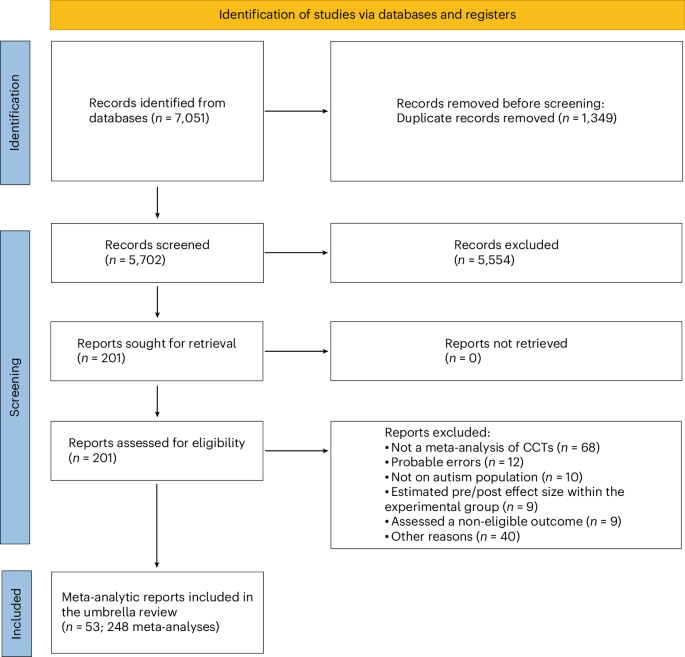
The latest umbrella review on complementary, alternative, and integrative medicine (CAIM) for autism offers a comprehensive analysis of existing studies, shedding light on the efficacy and safety of various interventions. Conducted under the publicly available protocol PROSPERO CRD42022296284, the review adhered to stringent guidelines, including the U-REACH and PRIOR reporting standards. This extensive review aims to bridge the gap between scientific evidence and practical application in autism care.
The review encompassed a wide-ranging search across databases such as MEDLINE, Web of Science, Embase, CINAHL, and PsycINFO, with no restrictions on language or publication date, up to December 31, 2023. The team focused on systematic reviews paired with meta-analyses of both randomized and non-randomized controlled clinical trials (CCTs) to assess CAIM’s impact on core and related autism symptoms.
Expanding the Scope of Autism Interventions
In a notable departure from the initial protocol, the researchers included both randomized and non-randomized trials. This decision was made to ensure a comprehensive mapping of the literature, acknowledging the challenges in conducting randomized trials for certain promising interventions. Despite less than 10% of studies being non-randomized, a sensitivity analysis restricted to randomized trials confirmed the robustness of the findings.
A review was deemed systematic if it met specific criteria, including searches in at least two scientific databases and clear inclusion and exclusion guidelines. The definition of autism used in the studies aligned with international standards, such as the DSM and ICD classifications.
Age-Specific Analysis and Intervention Types
The review categorized results into four age groups: preschool children, school-aged children, adolescents, and adults. This stratification allowed for a nuanced understanding of CAIM’s effects across different life stages. The study identified 19 types of CAIM, focusing on primary outcomes like autism core symptoms and CAIM-related safety, alongside secondary outcomes such as language skills, cognitive functioning, and psychiatric comorbidities.
“The prespecified primary outcomes of interest were autism core symptoms and CAIM-related safety,” the review states, emphasizing the comprehensive approach taken in evaluating these interventions.
Data Integrity and Methodological Quality
Data extraction was meticulous, involving checks for bias and accuracy. The quality of meta-analyses was assessed using the AMSTAR-2 tool, ensuring high standards were maintained throughout the review process. In cases of overlapping meta-analyses, the most recent and methodologically sound analysis was prioritized, underscoring the commitment to evidence-based conclusions.
The review also tackled the challenge of assessing levels of evidence, opting for an algorithmic version of the GRADE framework. This approach allowed for a systematic evaluation of evidence strength, accounting for factors like bias and inconsistency.
Innovative Dissemination Through the EBIA-CT Platform
To enhance accessibility, the review’s findings are disseminated via the EBIA-CT platform, a user-friendly resource designed for clinicians, autistic individuals, and their families. The platform, structured into sections on interventions, preferences, and a database, facilitates informed decision-making and supports ongoing research.
The platform is envisioned as a ‘living resource,’ with annual updates planned over the next five years. This dynamic approach aligns with living review principles, ensuring that the platform remains a relevant and valuable tool for stakeholders.
Future Implications and Continuing Research
The review’s findings highlight the potential of CAIM in autism care, offering a foundation for future research and clinical practice. By integrating diverse study types and focusing on methodological rigor, the review sets a precedent for comprehensive analyses in the field.
As the landscape of autism interventions continues to evolve, this umbrella review and the EBIA-CT platform represent significant strides toward bridging the gap between research and real-world application. The ongoing updates and user-friendly design of the platform ensure that it remains a pivotal resource for those navigating the complexities of autism care.




